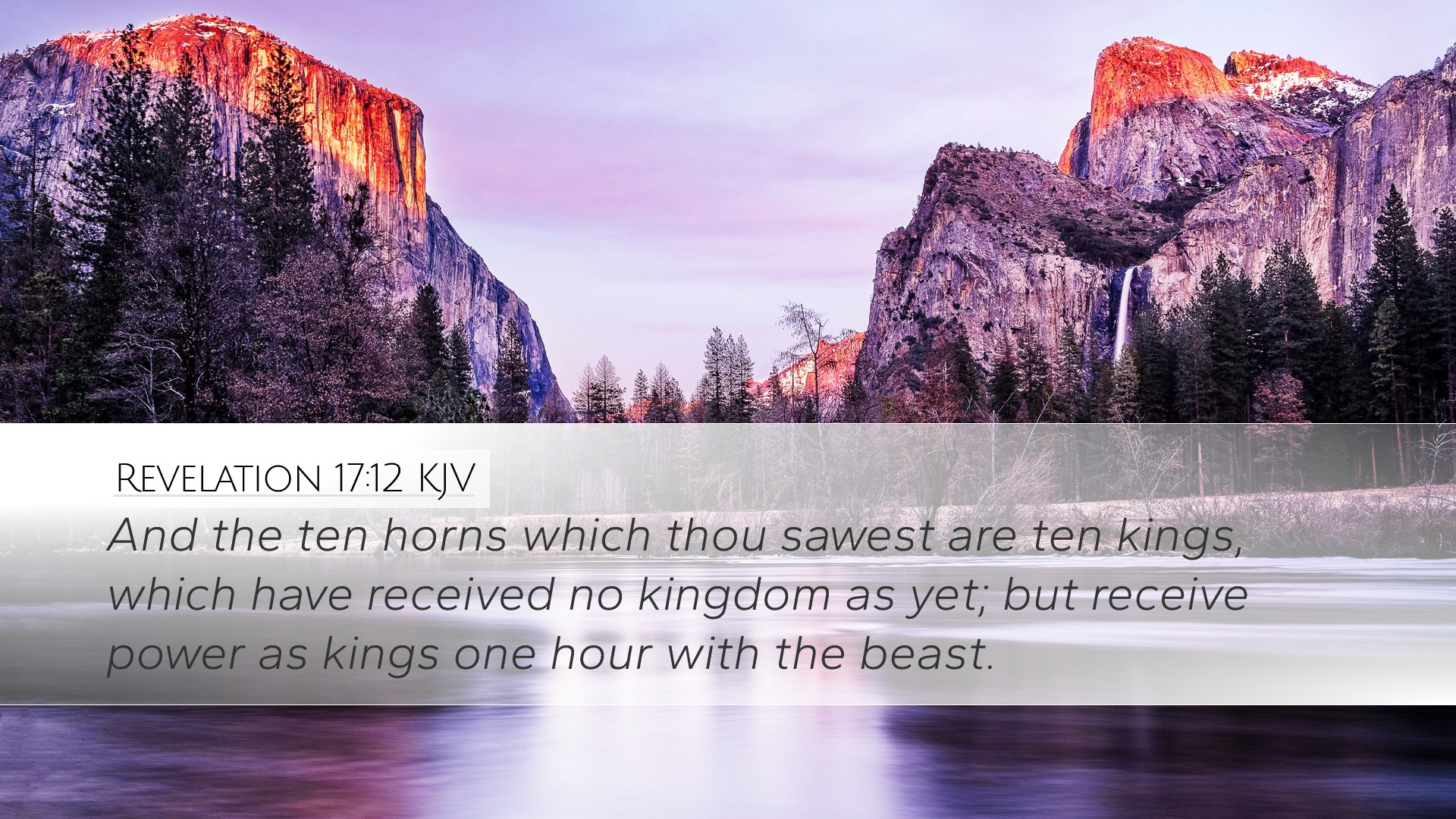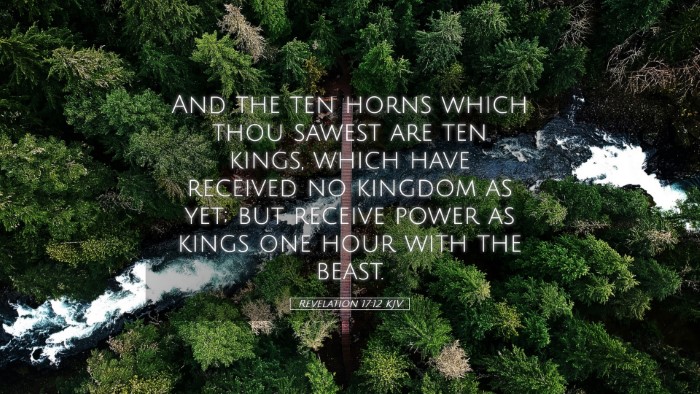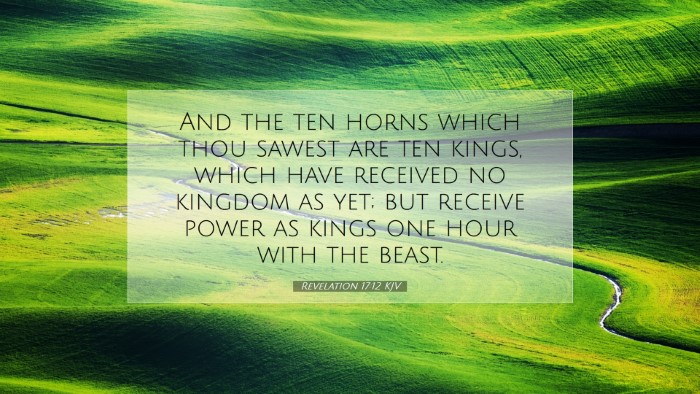The Interpretation of Revelation 17:12
Verse Context: Revelation 17:12 states, "And the ten horns that you saw are ten kings, who have not yet received royal power, but they are to receive authority as kings for one hour, together with the beast."
Understanding the Ten Horns
The imagery of horns in the Book of Revelation is significant, often representing power and authority. In this verse, they signify ten kings who are yet to rise to power. These kings are associated with the beast, suggesting a coalition or alliance that is both temporary and potent.
Insights from Matthew Henry
Matthew Henry interprets these ten horns symbolically, associating them with a future political alliance that will aid the beast in its endeavors. He emphasizes that these kings are not sovereign in their own right but have a borrowed authority. Their rise to power, though sanctioned for a brief time, serves the larger purpose of God’s plan for judgment and redemption.
Albert Barnes' Commentary
Albert Barnes expands the understanding of these kings, suggesting that they may represent geographical or political entities rather than individual rulers. He indicates that their authority is limited ("for one hour"), which underscores the temporary nature of their power in conjunction with the beast. Barnes also draws parallels between these kings and historical powers that have similarly without lasting legacy.
Reflections from Adam Clarke
Adam Clarke offers insights into the nature of these ten kings as possibly representing ten distinct entities that will come together, potentially in the end times, to support a common cause against God’s people. Clarke's perspective encourages readers to see these connections as not purely historical but as prophetic, indicating a future consolidation of power that aligns against divine authority.
The Significance of 'One Hour'
The phrase "for one hour" carries profound implications about the duration of their reign. This brief period indicates:
- Transience of Earthly Power: The short-lived nature of their authority serves as a reminder of the temporary nature of human power against the eternal plans of God.
- Divine Sovereignty: It reflects God's ultimate control over history. Despite the alliance, their reign exists within the time frame established by God.
- Fulfillment of Prophecy: This limited time may also indicate a specific timeframe in the eschatological timeline as prophesied in Scripture.
Interpreting the Coalition with the Beast
The partnership between the ten kings and the beast draws attention to:
- Common Agenda: Together, they work towards a shared goal that may oppose God’s purposes, representing alliances that form against spiritual convictions.
- Influence of Evil: The beast often symbolizes ultimate evil or opposition to Christ; therefore, the kings' alliance under this beast signals a profound moral and spiritual depravity.
- Consequences of Rebellion: The alliance ultimately leads to judgment. While they share a brief power, their end is destruction as foretold throughout the scripture.
Theological Implications
Theological students and scholars may note several key implications derived from this verse:
- Understanding Eschatology: This passage informs discussions on end-time theology, particularly regarding the nature and structure of political systems prior to Christ’s return.
- Human Responsibility: While the scriptures indicate God’s sovereignty, the involvement of these kings suggests a call to human responsibility and discernment in understanding the movement of social and political factors today.
- Moral Reflection: The cooperation of kings with the beast serves as a cautionary reflection on the moral choices of leadership and the dangers of compromising faith for the sake of power.
Practical Applications
In light of Revelation 17:12, pastors and spiritual leaders can draw practical applications such as:
- Vigilance in Leadership: Awareness of the potential for compromise, challenging leaders to prioritize integrity and righteousness over temporary authority.
- Encouragement for Believers: Assurance that despite the rise of evil and oppression, God remains sovereign. This should motivate believers to maintain their faithfulness.
- Engagement with Culture: Encouragement to engage with cultural and political systems while being mindful of aligning with values that honor God's ultimate authority.
Conclusion
Revelation 17:12 delivers a profound message about the nature of earthly authority, its alliances, and its implications for both past and future believers. By interpreting this verse through the insights of historic commentators, we are reminded of the ever-present battle between good and evil, the fleeting nature of worldly power, and the certitude of divine sovereignty. As we reflect on this scripture, may it inspire faithfulness amidst challenges and a deeper understanding of God's ultimate plan.


